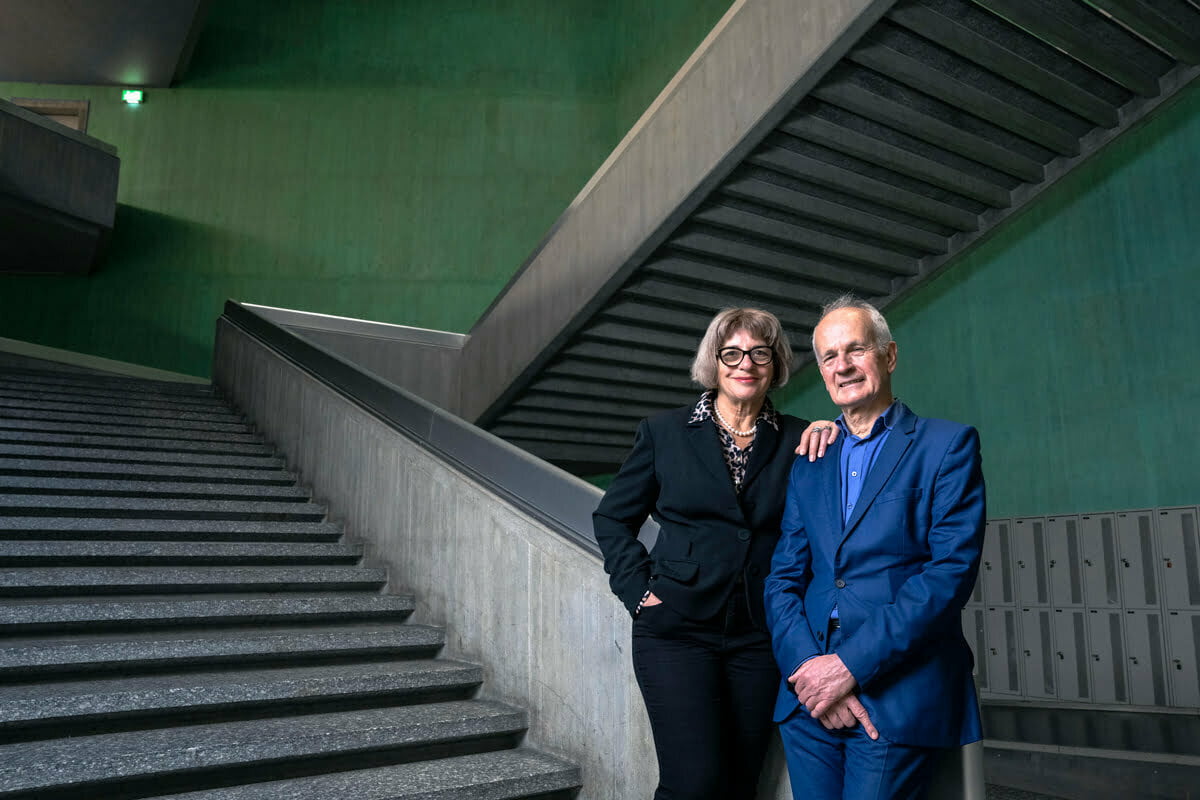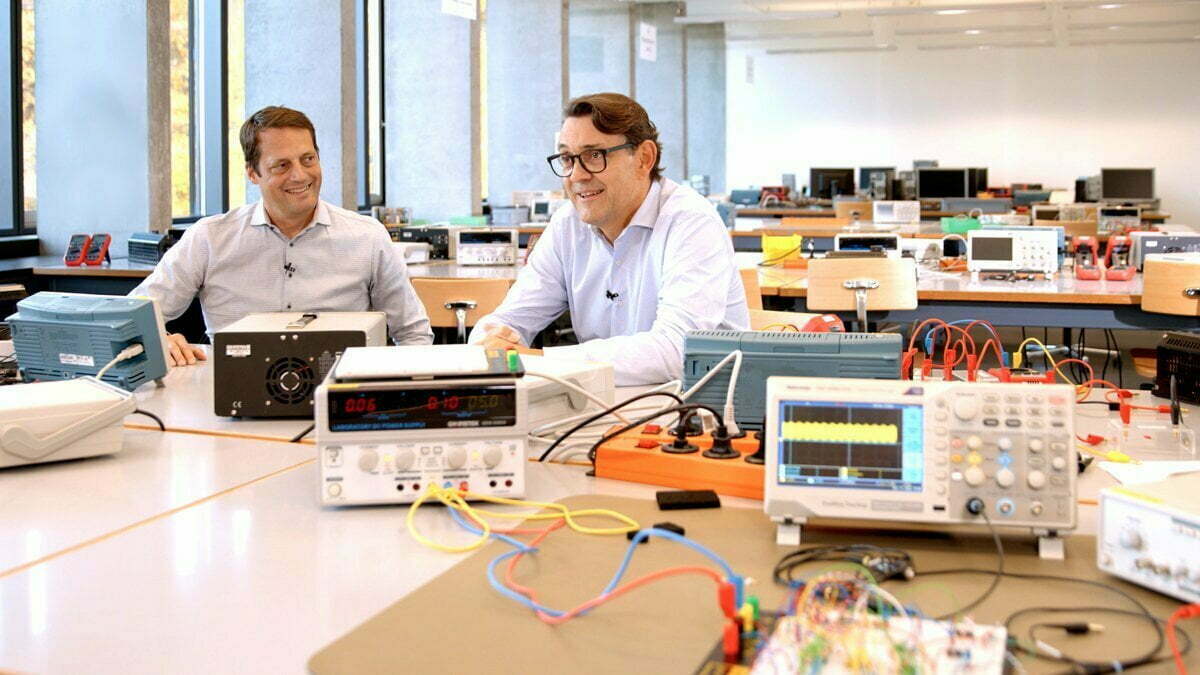“ETH taught us how to be disciplined and pragmatic – and much more that went beyond our field of study”
She studied architecture at ETH Zurich; he was a physics student. When Charles and Marika Jacquemart met in their old cafeteria, the “Studentenheim”, they didn’t yet know that they would later become life partners. Today they take a look back at their time at ETH over 50 years ago.

© ETH Foundation / Valeriano di Domenico
© ETH Foundation / Valeriano di Domenico
What sticks out in your mind when you look back at your time at ETH Zurich?
CHARLES JACQUEMART: I studied physics at ETH Zurich and later got my PhD. So the excellent education that I enjoyed is what I remember most today. Not to mention the interesting connections I made with classmates and professors.
MARIKA JACQUEMART-BOUAOUDIA: For students like me who had enjoyed a simple, unstructured upbringing in Wallis, some of the professors came off as really strict and challenging in the beginning. But later I was grateful for the order and discipline that they taught us. They also behaved properly towards us girls – at the time we were barely 10% of the student body – and treated us just the same as the boys.
You both met at ETH. What’s the story?
MARIKA: I saw Charles for the first time in the cafeteria of the dormitory. He was sitting two tables away and caught my eye. At that moment I never would have thought I’d end up spending my life with this man! Later I found out that he was from Luxembourg. The students from Luxembourg often joined us students from francophone Switzerland and from abroad when going out to Niederdorf, the Zurich old town.
CHARLES: After graduating we grew closer, since we had a lot of interests in common and we lived near each other in the sixth district of Zurich. After our wedding, Marika encouraged me to look for a job in western Switzerland. That’s how I ended up at the International Electrotechnical Commission, an international standards organization headquartered in Geneva.
What advice would you give to ETH students today?
CHARLES: Question the status quo and take a critical view of the current state of knowledge. It’s also wise to seek balance with sports or cultural or social activities after you graduate.
MARIKA: I would advise them to expand their horizons by visiting lectures outside of their field. ETH offers so many exciting courses, like history, languages and many more. I took an Arabic course in the former Department XII, for example.
What lessons did you learn at ETH that still stick with you today?
CHARLES: Taking a pragmatic approach and being reliable at work.
MARIKA: The training to become an architect is very broad and diverse. During my studies I had the chance to learn a lot about art history, which is something that people are now pursuing at my age as a hobby. In particular I appreciated the law lectures by Professor Jagmetti, at the time a National Council member.
What’s your favourite place at ETH and why?
CHARLES: I don’t have one specific favourite place, but when I was studying it was one of my favourite activities to converse and debate with other students and with the assistants and lecturers. This happened all over the place, inside and outside the lecture halls and in the cafeteria.
MARIKA: I loved being in the cafeterias! They were lively and cosy, with a lot of exciting interactions, and made better with a cup of hot Caotina chocolate. For me the best one was the cafeteria in the “le Stud” dorm, where French-speaking Swiss regularly got together to play Jass. After the Stud closed, we met in the cafeteria under the Polyterrasse, but it didn’t have the same charm. C’est la vie!


